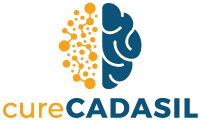Ongoing, international research into CADASIL is providing new insights and avenues of study that can lead to treatment options and hopefully bring us one step closer to a cure. Below are abstracts of recently published papers by pioneering researchers in the field.
If you know about any upcoming publications, please contact us so we can include them on our site: [email protected]
How to predict a CADASIL patient’s risk for stroke or dying
Studies are needed to best determine how to measure risk and outcomes that can be used to design clinical trials. In this study investigators from Paris, France, registered 482 CADASIL patients between 2003–2020; 60 (12%) had no follow-up and were excluded. They examined risk for having either a stroke or dying, whichever occurred first. During follow-up of 422 patients, 86 had a stroke and 58 died without a stroke. Among 99 possible predictors, they found 15 that predicted time to developing a stroke or dying. There was no single analytical method that dramatically outperformed the others. Additional studies with larger numbers of patients, longer follow-up, and novel measurements to better predict risk and define outcomes that matter to patients, will help in designing future therapeutic trials.
Chhoa H, Chabriat H, Chevret S, Biard L. Comparison of models for stroke‑free survival prediction in patients with CADASIL. Sci Rep. 2023 Dec 17;13(1):22443.
PMID: 38105268 DOI: 10.1038/s41598-023-49552-w
A comprehensive review of CADASIL and its management
The American Heart Association gathered a group of experts on CADASIL and other similar diseases. This group reviewed the available evidence and produced a comprehensive, state of the art, scientific statement. They concluded that individuals with CADASIL show variability in the nature and onset of symptoms and rates of progression, and that it is important to make a diagnosis early in its course. They make recommendations for patient management and future studies to identify new treatments.
Meschia et al. Management of Inherited CNS Small Vessel Diseases: The CADASIL Example: A Scientific Statement From the American Heart Association Stroke. 2023;54 e452–e464
PMID: 37602377 DOI: 10.1161/STR.0000000000000444
National & international collaborations to advance research
Research into rare diseases like CADASIL will benefit from collaboration and sharing of data. This review article describes 24 national and international efforts to advance research into vascular causes of dementia: MarkVCID, DiverseVCID, DISCOVERY, COMPASS-ND, HBC, RHU SHIVA, UK DRI
Vascular Theme, STROKOG, Meta VCI Map, ISGC, ENIGMA-Stroke Recovery, CHARGE, SVDs@target, BRIDGET, CADASIL Consortium, CADREA, AusCADASIL, DPUK, DPAU, STRIVE, HARNESS, FINESSE, VICCCS, VCD-CRE Delphi.
Saks DG, Smith EE, Sachdev PS. National and international collaborations to advance research into vascular contributions to cognitive decline. Cereb Circ Cogn Behav 2024; 6 100195
PMID 38226362 DOI: 10.1016/j.cccb.2023.100195

